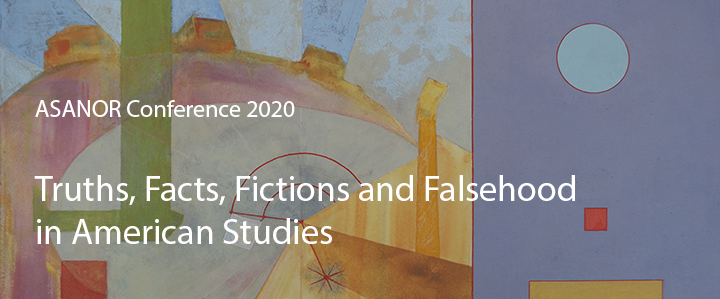
Call for Papers
“Post-truth” was the Oxford Dictionary´s word of the year for 2016, following a 2000% increase in its usage. Is twenty-first century America, post-truth? What would that mean exactly, and what are the implications for American Studies? How are the truths of literature and history different? How does truth emerge differently from narratives vs. arguments, from personal vs. public discourses? What is the role of truth-telling in accomplishing social justice or securing human rights? For its 2020 bi-annual conference, the American Studies Association of Norway invites reflections on “Truths, Facts, Fictions and Falsehood in American Studies.”
Toni Morrison says that “facts can exist without human intelligence, but truth cannot.” Conference presentations might inquire further into the differences between truths, facts, fictions and falsehoods. Although “post-truth” and related concepts like “fake news” recur in American public discourse more frequently in the twenty-first century, scholars might historicize these concepts by connecting them to older conceptions of truth-telling, including the appeal to “self-evident” truths in the Declaration of Independence.
In the tradition of American Studies in Norway, contributions from any relevant discipline are welcomed, as are contributions related to classroom practice. Graduate student submissions are especially encouraged.
Topics might include:
- Truth and representation in fiction, autobiography, and/or history
- The role of reader/viewer response in defining cultural truth
- “Tell the truth, but tell it slant-” Poetry and truth-telling
- Utopian, dystopian and satirical genres of truth-telling
- Invented truths and American grand narratives
- The role of various media in truth and falsity (visual, digital, print, etc), or social media’s influence on cultural truth and falsity
- Self-representation as truth-telling, especially in relation to the struggles of Indigenous peoples, women, LGBTQA+ persons, persons of color, ethnic minorities and migrants, persons with disabilities, etc.
- The authority of the text/the oral literary practices, for example of Indigenous Americans and/or African Americans
- Revisionist histories and American discourses of the true.
- Truth v. “facts” in cultural, political, economic, and/or historical discourse
- Negotiating local, regional, national, and transnational truths
- Facts and alternative facts in the Age of Trump
Abstracts of 300 words should be sent, along with a short biography
to Laura Castor at laura.castor@uit.no by May 15th.